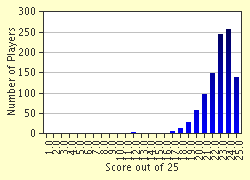Quiz Answer Key and Fun Facts
1. The victim usually feels as though she may be at risk.
2. At the beginning of the relationship, the man may have accelerated the pace, prematurely placing on the agenda such things as commitment, living together and marriage.
3. Most abusers will resolve conflicts by talking things out calmly.
4. The abuser will often use threats and intimidation as instruments of control or abuse. This includes threats to harm physically, to belittle, to embarrass, to restrict freedom, to disclose secrets or tell lies, to cut off support, to abandon, and to commit suicide.
5. Most abusers have never battered in prior relationships.
6. Abusers may use alcohol or drugs with adverse effects (such as memory loss, hostility, cruelty), citing them as an excuse or explanation for hostile or violent conduct ("That was the booze talking, not me; I got so drunk, I was crazy").
7. Most abusers are good citizens who never break the law and who've never had encounters with the police or the court system.
8. An abuser allows his victim to move about freely, make whatever purchases she chooses and behave as she feels she should.
9. The abuser becomes jealous of anyone or anything that takes his victim's time away from the relationship; keeping her on a "tight leash" and requiring her to account for her time.
10. The abuser gracefully accepts rejection.
11. An abuser expects the relationship to go on forever, sometimes using phrases like "together forever", "always", "no matter what", and "until we die".
12. He projects extreme emotions onto others, such as hate, love, jealousy, and/or commitment even when there is not evidence that would lead a reasonable person to perceive them.
13. When an abuser feels his relationship is breaking down or if his victim leaves him, he NEVER tries to get her family or friends involved to try to get her back.
14. An abuser will inappropriately investigate or follow his victim.
15. An abuser can be very paranoid and may feel that others are 'out to get him', believing his victim's family & friends dislike him and will encourage his victim to leave him.
16. Abusers are pretty laid back and easy to get along with.
17. An abuser will exhibit negative feelings towards other abusers and strive to protect other victims.
18. An abuser refuses to take blame for anything.
19. Weapons are a substantial part of the abuser's persona. He will most likely have a gun or talks about, jokes about, reads about, or collects weapons.
He refers to weapons as instruments of power, control, or revenge.
20. Abusers will usually help around the house and with child care.
21. Abusers usually come from safe, loving homes.
22. Most abusers suffer with mood swings or are sullen, angry, or depressed.
23. An abuser will usually minimize or trivialize incidents of abuse.
24. An abuser derives his own identity from his victim.
25. An abuser 'lays all of his cards on the table' from the beginning of the relationship with his victim. He tells her the truth about everything about himself and his life.
Source: Author
frostwoman
This quiz was reviewed by FunTrivia editor
crisw before going online.
Any errors found in FunTrivia content are routinely corrected through our feedback system.

